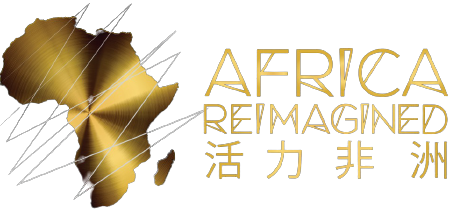Starting on November 19, Houthi attacks and counter-strikes on commercial ships transiting through the Bab al-Mandab strait along the Red Sea have been a major disruptor of international trade through this vital artery. A 32km wide channel connecting the Red Sea to the Gulf of Aden and the Indian Ocean, the strait is a strategic maritime chokepoint. The route from the strait to the Suez Canal carries over 10% of all international trade, representing about 20% of global container traffic. It was the centre of global attention in 2021 when a container ship, the EverGiven, got stuck in the Suez Canal and obstructed maritime traffic for six days. As a result of the attacks and the counter strikes, half of the fleet of ships plying this lane have been forced to use alternative routes that incur longer transit times and higher shipping costs. For global consumers, this is likely to result in a lower supply of goods coupled with higher prices within an environment of persistent inflation.
Whenever there is a global shock – from COVID-19 to trade wars – media headlines usually quickly emerge saying African countries will be the worst hit. We’ve explained in many contexts why such headlines are often misguided, but what about this new shock? Will the African continent be the worst hit?
The impact of this Red Sea crisis on African countries is likely to be an incredibly mixed bag given the diversity of the countries on the continent. On the one hand, African countries that rely on trade through the Red Sea—particularly those in the East Africa region—are likely to suffer negative consequences such as being unable to find key manufactured goods on shelves, and or higher costs of certain goods. In contrast, others may face delays in selling their exports. On the other hand, African countries with coasts may benefit from higher revenues as shipping vessels reroute through their waters and ports.
Of all African countries, Egypt, in particular, will be the hardest hit by the crisis. Transit fees levied on vessels passing through the Suez Canal are an important source of revenue and foreign exchange for the Egyptian government. In the financial year ending in June 2023, Egypt earned USD 9.4 billion from the Suez Canal. In the hopes of mobilizing more revenue, the Egyptian government recently increased the transit fees levied on canal vessels.
According to the IMF PortWatch, there has been a reduction of over 30% in the volume of traffic going through the Suez Canal following the attacks. Whereas ships are continuing to transit through the canal, the significant reduction in traffic volumes has resulted in a 40% reduction in revenues for Egypt. If the situation persists, the country is likely to continue losing millions of dollars. Given Egypt’s ongoing economic difficulties which include a shortage of foreign currency and high debt servicing costs, loss of revenue from the Suez Canal bodes ill for the country. The state uses this revenue to fund its welfare budget which was already slashed to address a large public debt. Further reductions to welfare spending tend to affect the poorest in society and could even stir social unrest.
But it is not only Egypt that is likely to suffer from this crisis; countries in East Africa are also likely to be negatively affected.
First, the Suez Canal is an important route for imports coming from Europe to East Africa. For many countries in the region, imports from Europe mainly consist of manufactured goods. For instance, machinery and transport equipment account for the largest percentage of imports from the EU for Ethiopia (47.2%), Uganda (30.8%) and Kenya (24.1%). This was followed by chemical products which account for 36%, 30.4% and 22.7% of Uganda, Ethiopia and Kenya’s imports from the EU. As such, countries in East Africa are likely to see reduced supply, and/or increase in prices for machinery and transport equipment as well as chemical products from Europe.
Secondly, East African countries that export goods via the Red Sea are likely to experience delays. For instance, Uganda exports more than 75% of its coffee products to EU countries via sea route. Ethiopia and Kenya’s exports to the EU represent about 20% of their overall exports respectively, many of which are transported through the Red Sea. Ethiopia in particular heavily relies on the port of Djibouti along the Red Sea to handle 95% of its trade. Since 2022, Kenya has been working to move 50% of its exports of fresh produce—accounting for 90% of its exports to Europe—from airfreight to sea freight. Therefore, these countries are likely to experience delays in their exports to Europe.
In addition, following the severing of all Russian energy imports, many countries in Europe are now reliant on oil from Asia and the Middle East which is transported via the Red Sea. An increase in global oil prices due to increased costs of shipping will affect many countries in Africa, especially those that rely on imported petroleum.
However, other African countries are already benefitting from the disruption. Countries in Southern Africa and Western Africa have emerged as alternative routes for ships avoiding the Red Sea. As a result, ports in Africa have experienced an increase of almost 70% in traffic volumes. Even relatively smaller ports in countries such as Namibia and Mauritius are benefitting from the windfall. These ports are preferred for bunkering because larger deep-water seaports such as Mombasa and Durban cannot handle the entirety of the expected volume of traffic.
As the old adage goes, never let a crisis go to waste. So, how can Africa benefit from this crisis in the long term?
First, African countries should increase investment in building better port infrastructure. The increase in traffic volumes at several African ports has exposed the inadequacy of Africa’s port facilities. Currently, Africa is responsible for approximately 6% of global maritime trade despite roughly 90% of its imports and exports being seaborne. This situation should provide African countries with the impetus to make the necessary investments to take advantage of the opportunity at hand. Indeed, even before this crisis, several African countries such as Kenya and Tanzania have been investing heavily in upgrading their port infrastructure.
Second, in addition to upgrading their port infrastructure, African countries should also intensify efforts to build regional and cross-country infrastructure across the continent to reduce economic dependence on shipping. Infrastructure connectivity in the African hinterland will boost intra-African trade and create new revenue-generation opportunities for African governments dependent on shipping.
Third, African countries should aim to build self-sufficiency in critical sectors such as energy and manufacturing to reduce dependency on international goods that leaves the continent vulnerable to external disruptions. For instance, with its sizeable amount of oil reserves, African countries should invest in refining capabilities to change the continent’s position as a net exporter of crude oil and a net importer of petroleum products.
As with other cases in the past, with COVID-19 being the most recent one, the mixed impact of the Red Sea crisis on Africa shows that the continent is not predisposed to suffer the worst of global shocks. The heterogeneous nature of African countries ensures that they experience global shocks differently. Indeed, many a time such crises present lucrative opportunities for African countries. With the volatile and uncertain state of global affairs, surely there will be many such opportunities. Capitalizing on these opportunities, however, requires African countries, to work closely with the private sector and development partners to make the necessary investments, especially in infrastructure development.
This post was originally published on Ventures Africa. To view it click here.













